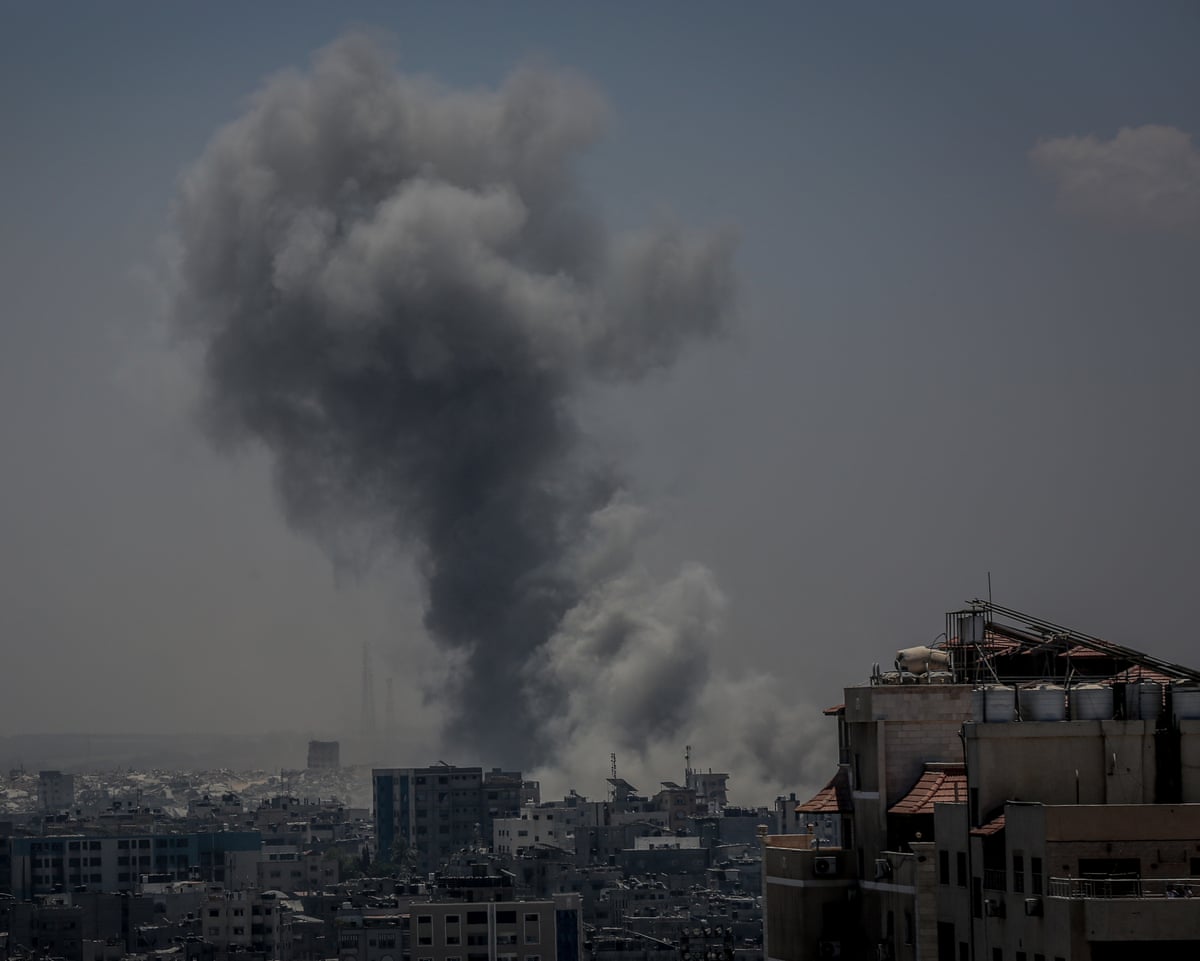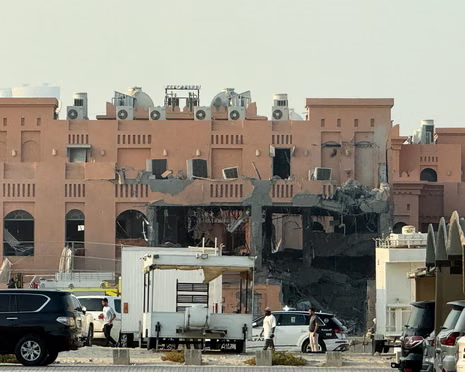Unprecedented Military Action in Doha
In a dramatic escalation of its regional military campaign, Israel carried out an airstrike targeting Hamas political leaders in Doha, Qatar, on Tuesday. The attack, described by Israeli media as part of “Operation Summit of Fire” or “Day of Judgment,” marks the first known Israeli military strike on Qatari soil. The move has thrown ongoing ceasefire negotiations into uncertainty, just as talks were reported to be approaching a potential breakthrough.
According to the Israel Defense Forces (IDF), the operation relied on “precise munitions and advanced intelligence.” Among the primary targets was Khalil al-Hayya, a senior Hamas negotiator, who, along with other leaders, was reportedly engaged in discussions surrounding a new ceasefire proposal. The proposal was linked to efforts spearheaded by former U.S. President Donald Trump, aimed at halting hostilities in Gaza.
Qatar Condemns the Strike

The Qatari government responded with unusually harsh language, condemning the strike as a violation of international law. Foreign Ministry spokesperson Majed Al-Ansari described the attack as “cowardly” and warned that it represented “a blatant violation of all international laws and norms.”
Qatar emphasized that the airstrike struck residential buildings used by Hamas’s Political Bureau, raising fears of civilian casualties. The statement also accused Israel of undermining ongoing mediation efforts, warning that the attack could prolong the conflict and complicate attempts to secure the release of Israeli hostages.
A senior Qatari official added that Israel had “undermined hopes for peace,” an unusually direct critique from Doha, which has long played a central role as mediator between Israel and Hamas since the outbreak of war following Hamas’s October 7, 2023 attacks.
Confusion Over Casualties

Reports about the outcome of the strike remain contradictory. Several Israeli and Saudi outlets claimed that top Hamas figures, including Khalil al-Hayya, Khaled Mashaal, and Zaher Jabarin, were killed in the operation. However, Al Jazeera, citing Hamas sources, reported that the leadership had survived. Neither Hamas nor Qatari authorities have issued an official confirmation regarding deaths or injuries.
The ambiguity has fueled speculation about whether the operation achieved its intended objectives or primarily served as a symbolic show of force. Analysts note that striking Hamas officials outside traditional conflict zones signals a significant expansion of Israel’s operational reach.
Regional Ramifications
The attack in Qatar extends Israel’s military campaign into yet another regional theater. In the past week alone, Israeli forces have struck targets in Gaza, Lebanon, Syria, and Tunisia, making Qatar the fifth country or territory to be hit. This marks the first known instance of Israel targeting a Gulf Cooperation Council (GCC) nation, a move that could significantly reshape regional alliances and diplomatic calculations.
Qatar, home to the largest U.S. military base in the region, has historically balanced its role as a mediator with its ties to both Western powers and Islamist groups such as Hamas. The strike threatens to strain Doha’s delicate position and could complicate its relationship with Washington, which relies heavily on Qatar for regional diplomacy.
Ceasefire Talks Stalled
The timing of the airstrike is particularly significant. In recent weeks, Hamas had shown unprecedented willingness to accept various ceasefire frameworks. In August, the group reportedly approved a plan mediated by Egypt and Qatar, informing mediators of their acceptance without adding conditions. That plan was based on a framework initially presented by U.S. envoy Steve Witkoff earlier in the summer.
More recently, Hamas leaders were reviewing new principles introduced by Donald Trump. These proposals called for the immediate release of Israeli hostages and the launch of broader negotiations to end the conflict. While Hamas acknowledged receiving these ideas through intermediaries and expressed openness to discussions, some officials dismissed the plan as a “humiliating surrender document.”
Qatar had been exerting pressure on Hamas to respond positively to Trump’s framework, with Prime Minister Sheikh Mohammed bin Abdulrahman Al Thani personally traveling to Cairo to advance talks. The Israeli strike, however, has effectively frozen the negotiations, removing key figures from the table and raising doubts about whether dialogue can resume in the near term.
Uncertain Path Ahead
Diplomatic observers warn that Israel’s decision to strike in Qatar could have wide-ranging consequences. By targeting Hamas leaders during ceasefire discussions, Israel risks not only derailing the talks but also alienating one of the few states capable of mediating between the two sides.
For Qatar, the attack represents a direct challenge to its sovereignty and a blow to its mediation role. For Israel, the strike underscores a willingness to expand its campaign beyond traditional battlefields, even at the cost of sparking new regional tensions.
As of now, the future of ceasefire negotiations remains unclear. Without clarity on the fate of Hamas leaders and with Qatar openly condemning Israel, the possibility of renewed talks appears increasingly remote.
What was once viewed as a pivotal moment for ending the war in Gaza may now mark the beginning of a deeper regional crisis.
Sources: The Guardian

